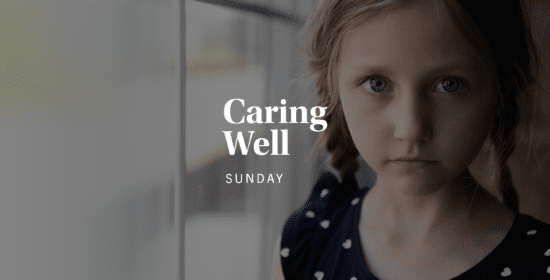In response to the revelations of a sexual abuse crisis in American society and recognizing that such abuse has occurred within our Southern Baptist churches, Southern Baptist Convention (SBC) President J. D. Greear commissioned a Sexual Abuse Advisory Group. He tasked the group with considering how Southern Baptists at every level can take discernable action to respond swiftly and compassionately to incidents of abuse, as well as to foster safe environments within churches and institutions.
The Advisory Group today released the report that is the product of that inquiry. As a part of the report, the Advisory Group listened to and learned from hundreds of survivors of sexual abuse, church leaders, and national experts in this field. The report includes the personal words and testimonies of many of those survivors. And the report aims to begin to educate Southern Baptist churches on the abuse crisis, equip Southern Baptist churches to care well for survivors, and to prepare Southern Baptist churches to prevent abuse.
The purpose of the report is to convey the key findings that have emerged from this effort in a way that reflects on the realities of the past, recognizes the challenges of the present, and resolves to embrace the opportunities of the future.
We encourage everyone to read the report in full. Pastors and church leaders will find a number of helpful resources for you and your church. Here are 10 takeaways from the report to get you started:
1. The report laments that sexual abuse and assault have been widespread in Southern Baptist churches. In all too many cases, the abuse was committed by pastors themselves, violating their sacred duty to care for their flock. In others, pastors covered over and protected abusers, harming survivors all over again. Southern Baptists lament that these grievous wrongs have happened in our churches.
2. The report gives voice to survivors of sexual abuse within Southern Baptist churches. Rather than simply telling the stories of survivors of sexual abuse, the report’s pages allow survivors to tell their own stories in their own words with their own voices. The report includes testimonies and stories told by Susan Codone, Jenn Greenberg, and Megan Lively, along with a number of other stories published anonymously or under pseudonyms.
3. The report acknowledges that the crisis of abuse within Southern Baptist churches is neither a new problem nor a simple one. The report recognizes that sexual abuse crisis in Southern Baptist churches has been festering for decades and that working toward healing and restoration will take time and significant effort from a spectrum of Southern Baptist leaders. The release of this report is the beginning, not the end of this process.
Russell Moore affirmed the need for a sexual abuse advisory group:
“Sexual assault and sexual abuse are Satanic to the core, and churches should be the ones leading the way when it comes to protecting the vulnerable from predators. […] We owe it to our pastors and churches to come together and provide the very best resources and recommendations possible to address this crisis.”
4. The report acknowledges that failures in responding to sexual abuse have occurred in many ways, including:
- Failing to adequately train our staff and volunteers—on the national, state, and congregational levels—to be aware of and respond appropriately to abuse
- Using church autonomy improperly to avoid taking appropriate action
- Failing to care well for survivors of abuse
- Failing to take disclosure seriously and to believe the survivor
- Failing to report abuse to civil authorities
- Recommending suspected perpetrators to new employment
- Promoting political, institutional, and congregational leaders whose language and behavior glorifies mistreatment of women and children
5. The report tackles the difficult problem of so-called “consensual affairs” between pastors and congregants. According to the report, “The power and spiritual influence that a member of the clergy wields over their congregants essentially renders consent impossible. Clergy can be especially effective at the grooming process, breaking down appropriate boundaries and manipulating their victims. They often get the benefit of the doubt as spiritual leaders, can leverage their positions of power to manipulate others, can play the victim card if they are caught, and can spiritualize the situation to minimize personal responsibility.”
6. The report acknowledges the way the Southern Baptist doctrine of church autonomy has been misunderstood and misapplied. According to the report, a structure of autonomous churches “should be utilized to allow each church to provide the justice and healing needed to stop abuse, turn perpetrators over to the justice system, and provide safe havens for victims. Instead, leaders in some churches have provided cowardly cover for perpetrators and have claimed to be dispensing mercy while withholding it from victims, and instead allowing injustice and evil to flourish.”
Russell Moore speaks incisively and convictionally about why this is so dangerous:
“Moreover, church autonomy is no excuse for a lack of accountability. Yes, in a Baptist ecclesiology each congregation governs its own affairs, and is not accountable to anyone ‘higher up’ in a church system. And yet, the decisions a church makes autonomously determine whether that church is in good fellowship with others. A church that excuses, say, sexual immorality or that opposes missions is deemed out of fellowship with other churches. The same must be true of churches that cover up rape or sexual abuse.”
7. The report acknowledges that some Southern Baptist churches have prioritized institutions over the vulnerable. “In the past, some Southern Baptist churches and leaders have been most concerned with protecting the reputation of their ministry and the church when abuse comes to light. Thus, they have failed to protect the survivors of sexual abuse themselves and failed to prevent future victims.”
Boz Tchividjian, former prosecutor, sex crimes expert, and founder of the ministry GRACE (Godly Response to Abuse in the Christian Environment), writes, “Why do so many churches fail to do the right thing when they learn that one of their own has been accused of sexual abuse? All too often it’s because the victimized are repeatedly overshadowed by the need to protect a ‘righteous’ reputation. I’m afraid it’s a rationale embraced by so many church leaders because it’s convenient and sounds so ‘godly.’”
8. The report points out that sexual abuse is not only a sin, but a crime. The report acknowledges that often, “church leaders receive reports or outcries that involve child sexual abuse or peer sexual abuse and respond as if the behavior is simply a sin, like premarital sex or a spouse having an affair. The church then attempts to address the matter only through steps of repentance, reconciliation and restoration.”
The report also quotes MinistrySafe founders and sexual abuse attorneys Gregory Love and Kimberlee Norris. They write, “When church leaders fail to report, the impact on the child, the family, and other victims cannot be overstated. Not only is the child harmed, justice is not served and the abuser continues to move freely to groom and molest again. Every church leader should know the state-specific reporting laws, prepare a reporting plan, communicate that plan to all ministry stakeholders. When in doubt, report.”
9. The report reckons with the fact that the perpetrators of abuse within our churches are among us. According to the report, “the majority of survivors of sexual abuse know their abuser. The Department of Justice found that 3 out of 4 female adult victims knew their offender. Additionally, 90% of child victims of sexual abuse know their perpetrator. . . . Time and time again, as survivors bravely come forward, an all-too-common refrain is heard: ‘We never thought it could happen in our church or our community.’”
10. The report provides next steps for pastors and church leaders. The report lays out a straightforward and clear process for churches to follow when a survivor of sexual abuse discloses the abuse to church leaders and encourages churches to engage with law enforcement immediately and allow the authorities to do their jobs. The report also recommends proactive steps churches can take to prevent abuse before it occurs and ensure the church is a healing place for survivors of sexual abuse. These steps address issues of training, safety, recognition of grooming, volunteer screening, among others.
Take the Caring Well Challenge
The Report also highlights the Caring Well Challenge, which is a unified call to action on the abuse crisis in the Southern Baptist Convention. This is a 12-month, eight-step process of listening, learning, assessing, and launching needed initiatives to ensure that your church is safe for survivors and safe from abuse. It provides churches with an adaptable and attainable pathway to immediately enhance their efforts to prevent abuse and care for abuse survivors. Each church that takes the Caring Well Challenge would commit to these eight steps—Commit, Build, Launch, Train, Care, Prepare, Share, and Reflect.
Visit caringwell.com to learn more and commit to the challenge.










